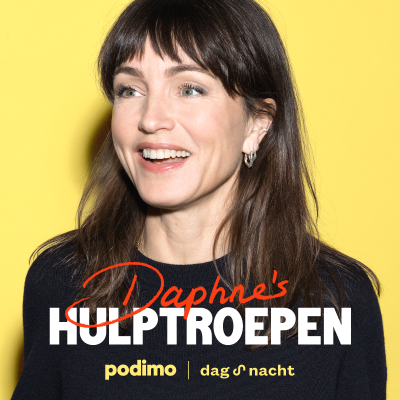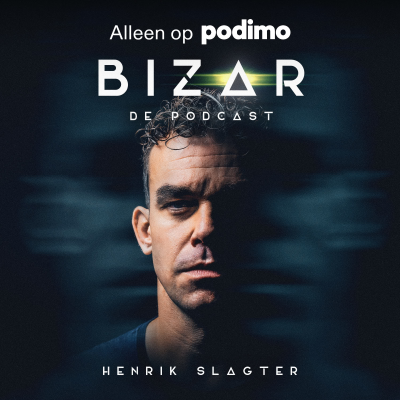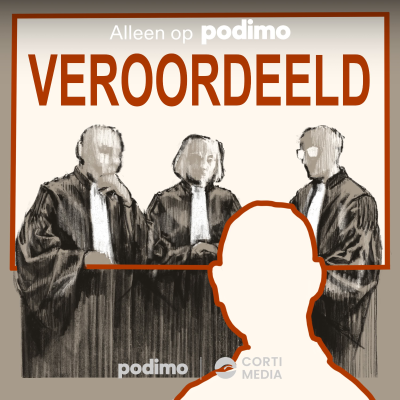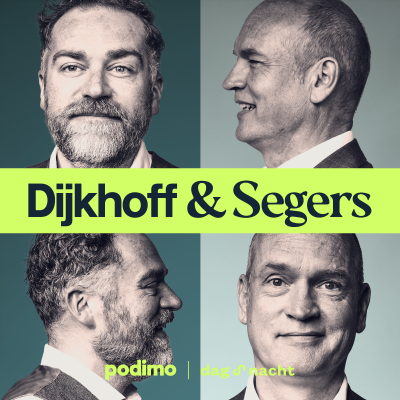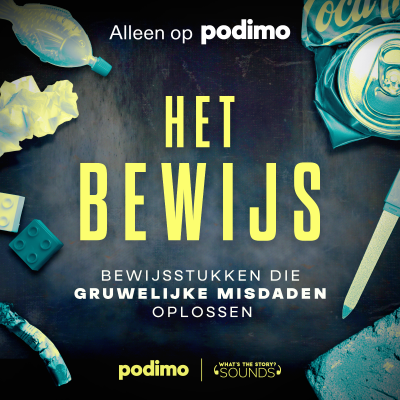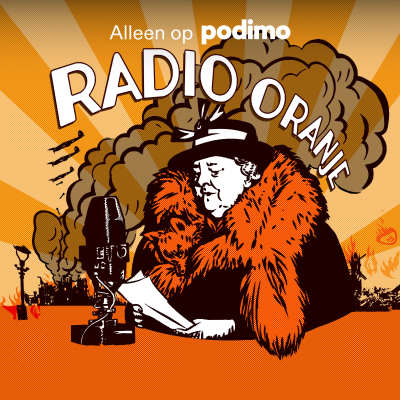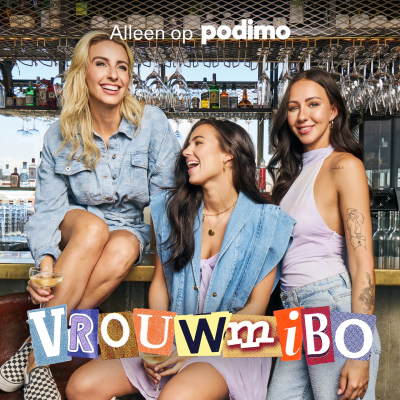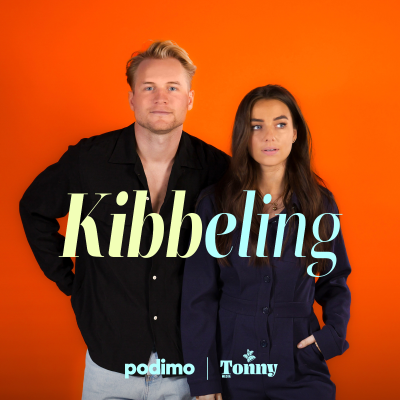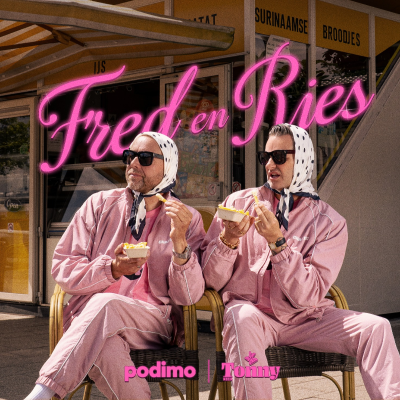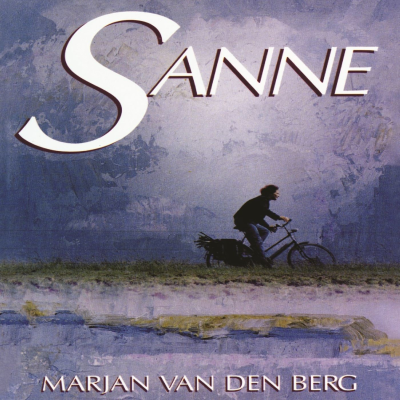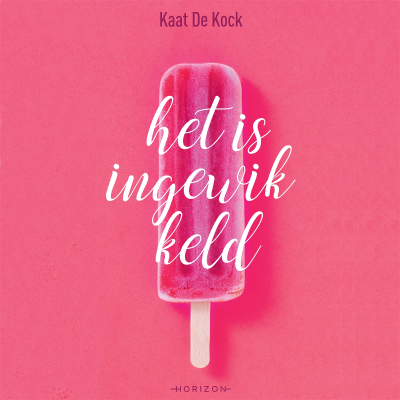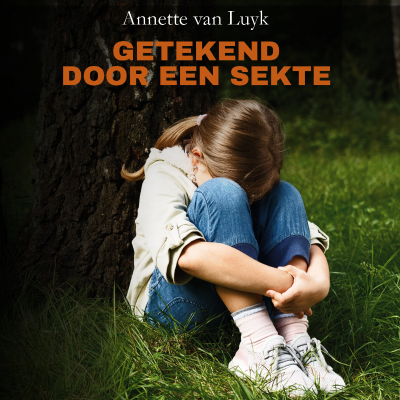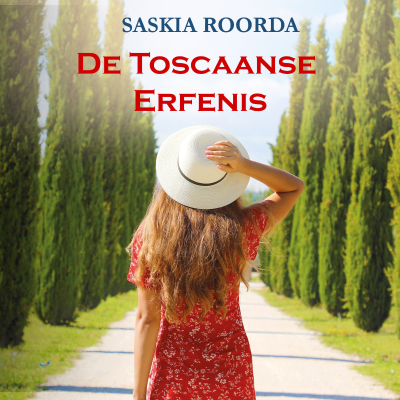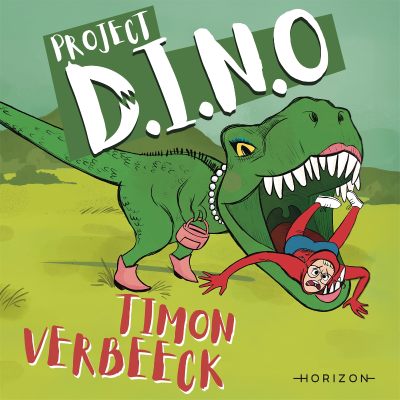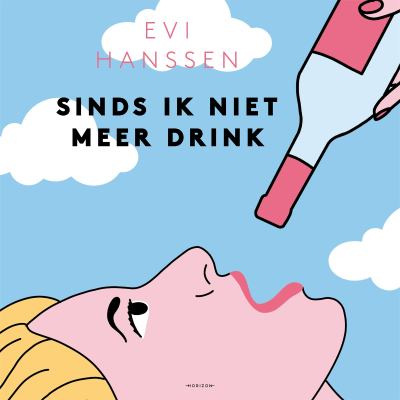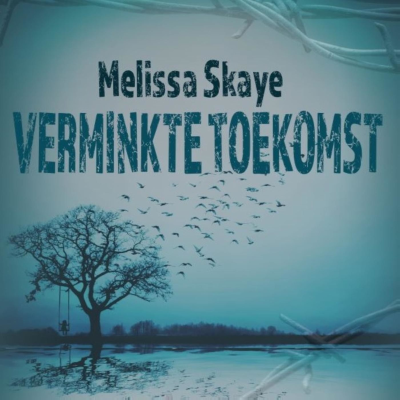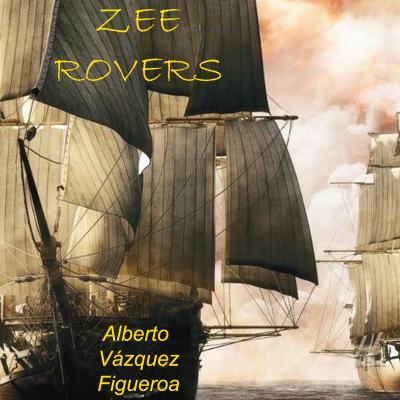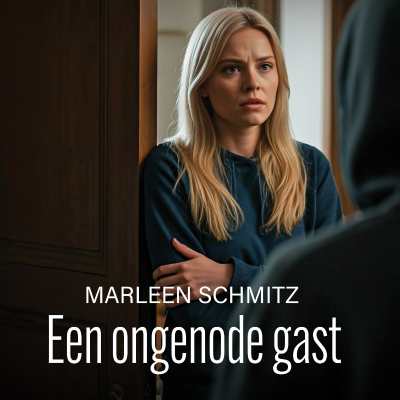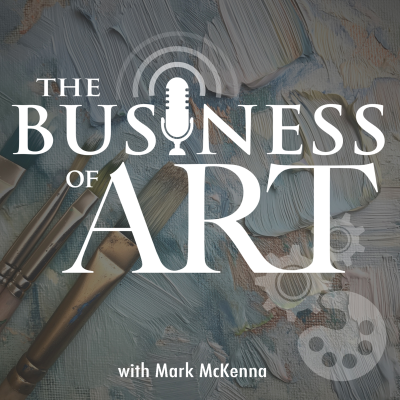
The Business of Art Podcast
Engels
Cultuur & Vrije Tijd
Tijdelijke aanbieding
2 maanden voor € 1
Daarna € 9,99 / maandElk moment opzegbaar.
- 20 uur luisterboeken / maand
- Podcasts die je alleen op Podimo hoort
- Gratis podcasts
Over The Business of Art Podcast
Welcome to the Business of Art podcast, hosted by Mark McKenna, a full-time artist dedicated to uncovering the secrets of success in the fine arts world. Through insightful interviews with seasoned professionals, Mark shares their stories, tips, and tricks for aspiring artists. Drawing from his own journey—from art education to becoming a provider for his family—Mark offers a roadmap for navigating the challenges and triumphs of the artist's life. Tune in for invaluable advice and inspiration on your path to artistic success.
Alle afleveringen
33 afleveringenEpisode 32 - How I ‘Dreamed Out Loud’ into a Full-Time Art Career – Amanda Markel
Looking for help to improve your painting skills? Join my Animal Painting Skool, where I share my entire process and members are seeing incredible results: https://www.skool.com/animal-portrait-painting/about Amanda’s Links: Website – https://agmarkel.com/ Instagram – https://www.instagram.com/a.g.markel/ Facebook – https://www.facebook.com/AGMarkelFineArt Books & Resources Referenced During the Interview: * Atomic Habits: An Easy & Proven Way to Build Good Habits & Break Bad Ones by James Clear * The Subtle Art of Not Giving a F*ck: A Counterintuitive Approach to Living a Good Life by Mark Manson * The 6 Types of Working Genius: A Better Way to Understand Your Gifts, Your Frustrations, and Your Team by Patrick M. Lencioni * The ONE Thing: The Surprisingly Simple Truth Behind Extraordinary Results by Gary Keller and Jay Papasan Jordan Peterson Podcast Slaying the Dragon Within Us Dunzo Executive Assistant https://www.getdunzo.com/ UPWORK https://upwork.com Summary Sculptor Amanda Markel (b. 1994) shares how she went from self-educated beginnings to full-time artist in 2022, developing a signature bronze style that uses intentional negative space to suggest movement, “lost edges,” and co-creation with the viewer. She describes how constraints in bronze led her to innovate, why vulnerability and story live inside her pieces, and how that distinct style accelerated recognition. On the business side, Amanda urges artists to pick a specific goal, reverse-engineer a path, and “dream out loud”—a practice that directly led to her first large-scale wolf sculpture, then a three-wolf installation at Benson Sculpture Garden (ultimately installed at 14 feet). She credits community, mentors, and even trusted collectors for candid feedback, and shares practical systems for staying inspired and consistent. Takeaways * Choose a specific end goal, then reverse-engineer the steps and timeline to get there—you’ll “collapse time” versus wandering. * “Dream out loud”: say what you want publicly so others can open doors; that approach led directly to her first monument-scale commission. * Signature style came from embracing constraints of bronze—using negative space, lost edges, and implied motion to make work identifiably hers. * Telling personal stories in your work helps audiences connect; vulnerability can move people to tears and build community. * Community is a force multiplier: build mentors, peers, and even collector-friends who’ll give honest feedback and act like an advisory board. * Treat it like a business: know your ideal client, and optimize channels (galleries vs. shows) to match your strengths. * Practical studio systems sustain creativity: finish the day by resetting your space; use tiny “Atomic Habits” steps to build momentum. * Apprenticeship and critique accelerate growth—seek generous teachers and structured feedback loops. * Don’t trade passion for money; protect the joy that keeps you creating for the long haul. * Art is meaning-making: negative and positive spaces (and life’s highs and lows) both belong; that’s why art matters to culture. * A clear, distinct style makes you easy to recognize—and speeds up career traction. * Real example of momentum: a small wolf became 6.5 ft, which led to a three-wolf commission installed at 14 ft at Benson Sculpture Garden. Looking for help to improve your painting skills? Join my Animal Painting Skool, where I share my entire process and members are seeing incredible results: https://www.skool.com/animal-portrait-painting/about
Episode 31 - Artist Tyler Murphy on Burnout, Balance, and Building a Better Life
Looking for help to improve your painting skills? Join my Animal Painting Skool, where I share my entire process and members are seeing incredible results: https://www.skool.com/animal-portrait-painting/about Tyler’s Links: Website: https://www.montanagallery.netInstagram: https://www.instagram.com/tylermurphyart/ Summary In this episode, Mark sits down with Tyler Murphy — painter, entrepreneur, and former gallery co-owner — totalk about the hidden costs of hustling in the art world and why more sales isn’t always the answer. Tyler sharesthe burnout he faced while trying to be both an artist and business owner, and how stepping back from thegallery world helped him find balance, peace, and renewed purpose. From co-running a successful gallery in Red Lodge, MT to now living intentionally in Billings, MT, Tyleropens up about rethinking success, embracing slow growth, and aligning his work with his personal values. Hetalks about making space for creativity, the mental and emotional toll of overworking, and the freedom thatcame with rebuilding a simpler art business model — one that honors both his personal life and his art. You’ll hear real insights about creating meaningful work, setting boundaries, and how Tyler turned his artbusiness into something sustainable, soulful, and still profitable. Takeaways * Success ≠ Hustle: More sales don’t equal a better life if you’re sacrificing health, family, or peace. * Burnout Is Real: Tyler faced physical and emotional exhaustion from overworking and managing agallery on top of creating art. * Less Can Be More: Simplifying his business model gave Tyler more creative energy and time withfamily. * Redefine the Goal: Building a life of purpose and balance matters more than maximizing profit. * Build Systems, Not Stress: Tyler now focuses on a slower, steadier approach that’s both sustainableand fulfilling. * Artist Identity Crisis: Stepping away from constant production helped him reconnect with what heactually wants to paint. * Marketing Authentically: Tyler shares his work in a way that’s rooted in storytelling, not just salestactics. * The Power of Presence: Time in nature and daily rhythms feed his creativity more than a packedproduction calendar ever did. Looking for help to improve your painting skills? Join my Animal Painting Skool, where I share my entire process and members are seeing incredible results: https://www.skool.com/animal-portrait-painting/about
Episode 30 - Joe Kronenberg Interview
Looking for help to improve your painting skills? Join my Animal Painting Skool, where I share my entire process and members are seeing incredible results: https://www.skool.com/animal-portrait-painting/about Joe's Links:Website: https://www.kronenbergart.net/Facebook: www.facebook.com/kronenbergartBrush-Hog: www.brush-hog.comInstagram: https://www.instagram.com/joe kronenberg/SummaryIn this episode of the Business of Art podcast, host Mark McKenna interviews artist Joe Kronenberg, who shares his journey from a wildlife artist to a successful oil painter. Joe discusses the evolution of his career, the impact of galleries, and how he adapted his business model during the COVID-19 pandemic. He emphasizes the importance of sales skills for artists and offers practical advice on approaching commissions and building relationships with clients. In this conversation, Mark McKenna and Joe Kronenberg explore the multifaceted world of art, focusing on the importance of building relationships in sales, staying true to one's artistic vision, and the evolution of an artist's style. They discuss the challenges of selling art, the significance of time management, and the balance between creating original works and prints. Joe shares insights on defining success in an artistic career and the importance of continuous growth and learning in the art field.TakeawaysJoe Kronenberg began his artistic journey in second grade, discovering his talent for drawing.He transitioned from pastels to oil painting, which allowed for larger and more expressive works.COVID-19 forced Joe to reassess his reliance on galleries, leading to greater financial success independently.Galleries can provide exposure and access to collectors, but artists should also diversify their income streams.Sales experience is invaluable for artists, helping them navigate commissions and client relationships.Building rapport with clients is crucial; artists should treat potential buyers as friends.Understanding the emotional aspect of art sales can enhance the selling process.Artists should be prepared to quote prices immediately to capitalize on client interest.Creating a positive experience for clients can lead to repeat business and referrals.Effective communication and relationship-building are key to a successful art career. Art serves as a solution to aesthetic problems for clients.Building relationships is key to successful art sales.Artists often sell themselves in everyday interactions.Transitioning from a sale to a commission can be smooth.It's essential to ask for the business without pressure.Artists should paint for themselves, not just for collectors.Artistic styles evolve over time; it's natural and necessary.Time management is crucial for productivity in art.Diversifying sales through prints can reach a broader audience.Success in art is defined by personal growth and fulfillment.Chapters00:00 Introduction to Joe Kronenberg's Artistic Journey02:22 The Evolution of Joe's Artistic Style08:04 Navigating the Gallery Landscape15:15 The Impact of COVID on Art Sales19:38 Sales Strategies for Artists29:09 Approaching Commissions Effectively32:24 The Importance of Immediate Pricing35:01 Pricing Strategies for Art35:49 Navigating Client Interactions39:34 Building Relationships Over Sales43:27 Creating a Comfortable Sales Environment46:54 Art as a Solution to Problems52:46 Staying True to Your Artistic Vision58:59 Evolving as an Artist01:00:24 Establishing a Productive Routine01:01:13 Time Management and Creative Focus01:06:36 Diversifying Art Sales: Prints and Originals01:14:27 Defining Success in an Artistic Career01:22:06 Advice for Emerging Artists: Finding Your path Looking for help to improve your painting skills? Join my Animal Painting Skool, where I share my entire process and members are seeing incredible results: https://www.skool.com/animal-portrait-painting/about
Episode 29 - Scott Jones Interview
Looking for help to improve your painting skills? Join my Animal Painting Skool, where I share my entire process and members are seeing incredible results: https://www.skool.com/animal-portrait-painting/about Episode 29 - Scott Jones - What Galleries Really WantScott's Links: https://www.facebook.com/scott.jones.73932 [https://www.facebook.com/scott.jones.73932]https://www.instagram.com/scottjonesfineart/ [https://www.instagram.com/scottjonesfineart/] SummaryIn this episode of the Business of Art podcast, host Mark McKenna interviews Scott Jones, an art enthusiast: and former business executive who transitioned Into the art world. Scott shares his journey from collecting art at a young age to managing gallerles and building relationships with artists. He emphasizes the importance of personal connections in the art market, the need for artists to promote themselves online, and the value of newsletters in maintaining collector engagement. Throughout the conversation, Scott provides insights into navigating the art market, the significance of art shows, and the evolving landscape of art sales. In this conversation, Scott Jones and Mark McKenna discuss the essential elements of building a successful art career, emphasizing the importance of consistent communication, strong gallery relationships, and understanding market dynamics. They explore the significance of managing expectations, the role of geography and seasonality in art sales, and the evolving role of galleries in promoting artists. The discussion also highlights the importance of networking and relationship building, providing valuable insights and parting wisdom for artists looking to thrive in the art industry.art, business, collecting, galleries, artist relationships, marketing, online presence, newsletters, art shows, personal connection, art communication, gallery relationships, artist success, market dynamics, art sales, networking, artist advice, art industry, artist promotion, art marketingTakeawaysScott Jones has been passionate about art since age 15.He transitioned from a business career to the art world.Art shows are vital for networking and collecting.Building relationships with artists enhances the collecting experience.Personal connections with artists add value to the artwork.The art market requires a blend of creativity and business acumen.Artists should actively promote themselves online.Newsletters are crucial for maintaining collector engagement.Small venues can provide significant opportunities for artists.Continuous improvement is essential for long-term success. Do your homework and choose the right platform for communication.Consistent communication, like newsletters, keeps artists connected with their audience.Managing expectations is crucial for successful gallery relationships.Artists should strive for consistency In their work for long-term success.Understanding market dynamics, including seasonality, is vital for artists.Galleries still play an essential role in an artist's career.Networking and building relationships can lead to more opportunities.Artists should be prepared to showcase their work at any moment.The right piece must meet the right person at the right time for a sale.Artists can achieve success by debunking the starving artist myth. Looking for help to improve your painting skills? Join my Animal Painting Skool, where I share my entire process and members are seeing incredible results: https://www.skool.com/animal-portrait-painting/about
Episode 28 - Morgan Weistling Interview
Looking for help to improve your painting skills? Join my Animal Painting Skool, where I share my entire process and members are seeing incredible results: https://www.skool.com/animal-portrait-painting/about Morgan’s Links: http://morganweistling.com/https://www.proko.com/course/painting-without-a-brainhttps://www.instagram.com/weistling/https://www.facebook.com/morganweistlingfineart Summary In this episode of the Business of Art podcast, host Mark McKenna interviews renowned artist MorganWeistling, who shares his extensive journey in the art world. From his early influences and formal training tohis transition into Hollywood illustration, Morgan discusses the challenges and lessons learned throughout hiscareer. He emphasizes the importance of hard work, taking direction, and the reality of being an artist.Morgan also delves into his creative process, the effort that goes into each painting, and the joy of creating artfor others to appreciate. In this conversation, Morgan Weistling shares insights into the life of a visual artist,discussing the advantages of being able to showcase work quickly compared to other art forms. He delves intohis artistic process, emphasizing the importance of feedback and critique, and reflects on his transition fromillustration to fine art, highlighting the challenges and rewards of this journey. In this conversation, MorganWeistling shares his journey from illustration to fine art, discussing the challenges and realities of making thistransition. He reflects on the impact of AI on the art world, expressing concerns about the devaluation oforiginal artwork and the oversaturation of imagery. Weistling emphasizes the importance of adaptability forartists in the face of changing industry dynamics and offers advice for aspiring artists, highlighting the value oflearning traditional skills and maintaining a positive outlook despite challenges. Takeaways Morgan was born into a family that encouraged his artistic pursuits.He received formal training at the Brandes Art Institute under Fred Fixler.Morgan transitioned from Hollywood illustration to fine art in 1998.He emphasizes the importance of storytelling in his artwork.Morgan learned valuable skills from his time as a Hollywood illustrator.He believes in the necessity of hard work and dedication in art.Morgan stresses the importance of taking direction and criticism.He creates detailed and narrative-driven paintings.Morgan's creative process involves extensive planning and preparation.He finds joy in creating art that others can appreciate.Being a visual artist allows for quick showcasing of work.The artistic process involves meticulous planning and execution.Feedback from trusted sources is crucial for artistic growth.Transitioning from illustration to fine art can be challenging but rewarding.Understanding the market and pricing your work appropriately is essential.Artistic vision develops through years of study and influence.Surrendering a painting means accepting it as complete, despite ongoing dissatisfaction.Using tools like mirrors can help artists gain perspective on their work.The journey of an artist is often a chase for satisfaction and improvement.Collaboration and critique can enhance artistic development.Fame in the art world does not always equate to financial success.AI is a significant disruptor in the art industry, affecting the value of original works.The oversaturation of imagery has devalued prints and original art alike.Artists must adapt to survive in a changing landscape. Learning traditional art skills remains valuable, regardless of industry changes.Creativity extends beyond the canvas; it includes problem-solving in life.Aspiring artists should not give up on their dreams despite challenges.There is still hope for artists who strive for excellence. Having a day job while pursuing art can provide financial stability. Improve your painting: https://www.skool.com/animal-portrait-painting/about
Kies je abonnement
Tijdelijke aanbieding
Premium
20 uur aan luisterboeken
Podcasts die je alleen op Podimo hoort
Gratis podcasts
Elk moment opzegbaar
2 maanden voor € 1
Daarna € 9,99 / maand
Premium Plus
Onbeperkt luisterboeken
Podcasts die je alleen op Podimo hoort
Gratis podcasts
Elk moment opzegbaar
Probeer 30 dagen gratis
Daarna € 11,99 / maand
2 maanden voor € 1. Daarna € 9,99 / maand. Elk moment opzegbaar.


